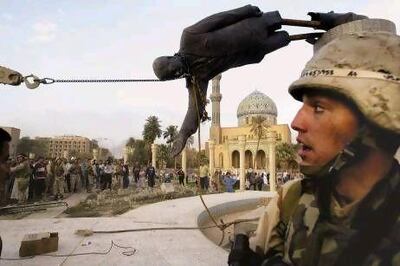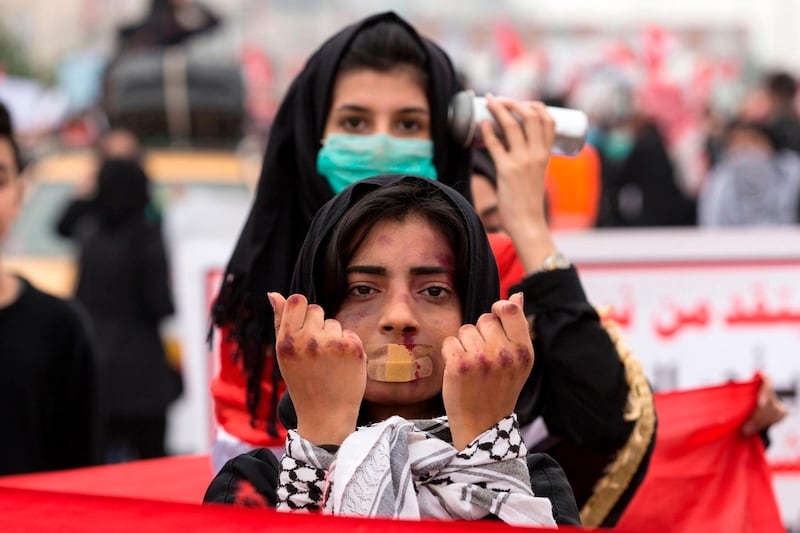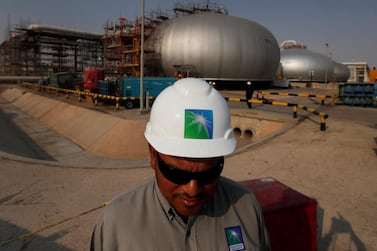"We want a nation but we don't have one. Do you see the streets? They haven't done anything, it's been 16 years and they haven't done anything." Those were the words of Hussein, a 15-year-old protester in Basra, as recounted by The National's correspondent Pesha Magid in her special report. Since October there have been protests across Iraq, driven by anger over a persistent lack of economic opportunities and the corruption at the heart of the governing class.
I found the protesting teenager's words deeply moving – for the fact that at his young age, he has only ever known his country as one associated with repeated failures to provide the basic services one should expect from a modern, functioning state. He has also witnessed the inability of successive governments to deliver on the promise of a better future for Iraq's population. As he infers, when the US-led invasion toppled Saddam Hussein's brutal regime in 2003, there was a lot of hope that it would lead to an Iraq that is worthy of its wonderful people. It was not to be, however, and the teenager's demands for a nation that he can be proud of pain my heart.
I was in Baghdad after the invasion 16 years ago and saw how the hope died within a matter of months.
The corruption was there, too, as the powerful and wealthy arrived immediately after the war was over and wantonly seized assets. Foreign contractors and corporations were able to milk the billions of dollars funnelled into Iraq’s supposed reconstruction, initially with minimal oversight.
In the summer of 2003, for example, I visited a highly influential former Iraqi exile who was occupying the property of a notorious ex-regime official and acting like a warlord. Around the same time, there were buildings taken over by rich exiles employing Kalashnikov-carrying guards. Gangsterism was the order of the day. Getting in and out of the heavily fortified Green Zone in the heart of the capital was always a chore with long security lines and body searches by US soldiers. Meanwhile civilian American contractors had the run of the place.
Within the Coalition Provisional Authority that ran the country in those months, I did meet well-intentioned, intelligent experts across a number of fields, from finance to media, who were there to help create a truly modern country. These men and women, however, had little chance of success. Their efforts – and those of the millions of honest, hard-working Iraqis who only wanted a chance to make the best of being free of Saddam – would be overwhelmed by a tide of self-interest, and political and sectarian divisions, as hundreds and thousands sought only to enrich themselves in the post-war chaos.
Political missteps, such as disbanding the army, continue to haunt us to this day, and the lack of an inclusive political process was damaging. So widely understood were these mistakes that they also provided ready-made excuses for failure behind which the corrupt and incompetent have been able to hide all these years.

Sometimes it seems to me that there has been a general unspoken feeling among those who became part of the post-war ruling class that as long as they did not become as evil as Saddam’s regime, that would constitute some kind of success. The bar for the quality of governance, having been raised so high in the immediate aftermath of the success of toppling Saddam, was eventually set just inches off the ground and that is where it has stayed.
Yet 16 years on, it is not too late. The desire to finally get things right is clearly there on the streets of many of the cities of Iraq. We also have young Hussein and others like him to think of, to build something with.
The government's crackdown on the ongoing protests, which has left hundreds dead and thousands injured, is at best a futile last-gasp gesture. More likely, however, it is further evidence of the truth that the system in place since 2003 has never been designed with the needs of the people in mind. It has always served only the few.
So, we must start again, pushing the reset button. We should not wipe away the lessons of the past 16 years in the same way that little, in the end, was learned from Saddam’s disastrous rule. At the heart of governance, there has to be fairness, equality and a commitment to ensure that all people have access to power, water, healthcare, as well as an opportunity to be a productive member of the workforce and society, should they choose to be.
A new constitution, along with a refreshed economic and social vision, must be developed. In that discussion, include the voices of all, young and old, no matter what political stripe.
Only by producing an attractive and compelling blueprint for a functioning Iraq can we seriously create the conditions to throw off the negative influences inside and outside the country – whether from ISIS or the Iranian regime – that have brought us to such a sorry situation.
Mustafa Alrawi is an assistant editor-in-chief at The National






